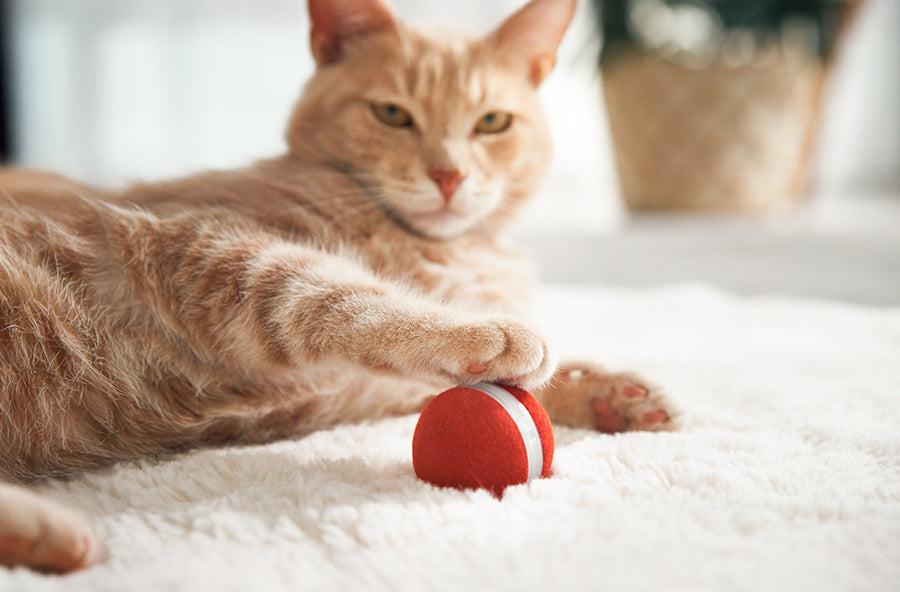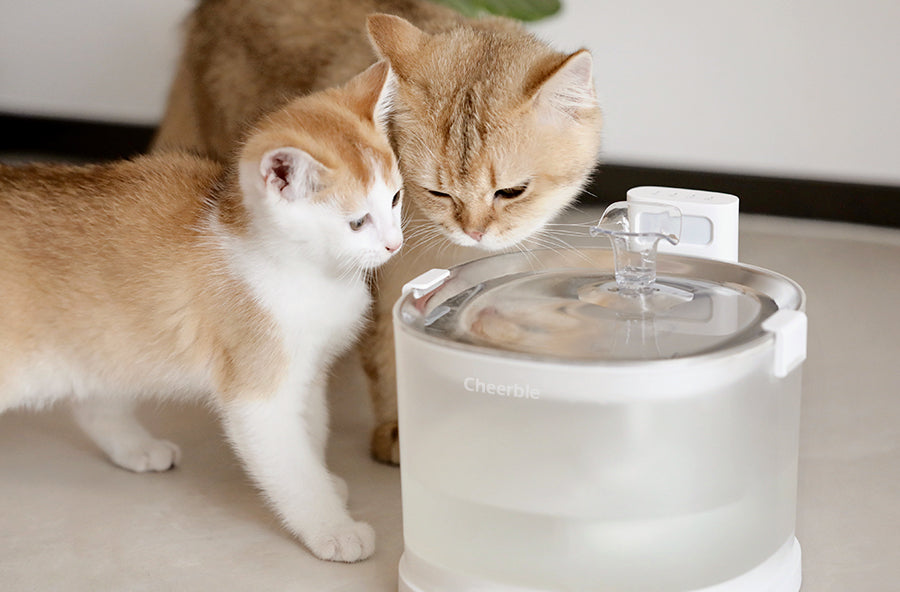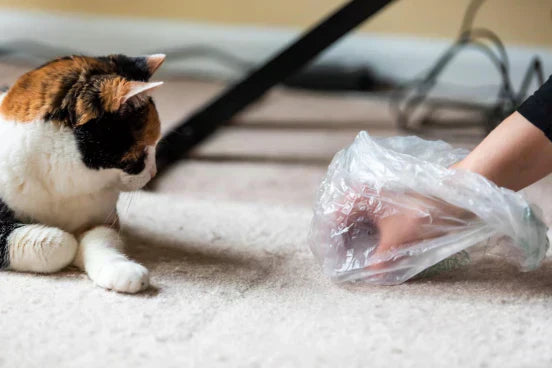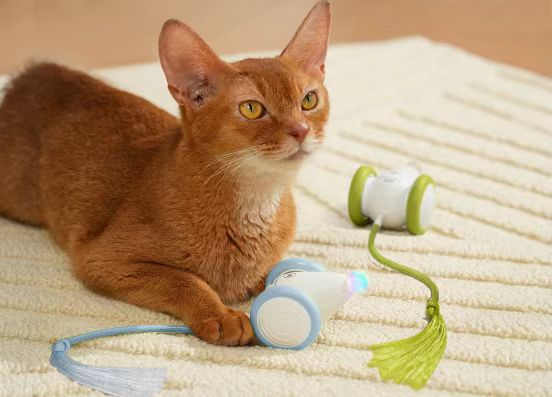Stepping into a room and finding cat poop somewhere it definitely shouldn’t be is not a great way to start your day. You clean the litter box regularly. You keep it topped up with fresh litter. So what gives?
If your cat has recently decided that the floor, the rug, or even your laundry pile is a better bathroom than their box, it’s easy to feel frustrated. But the truth is, they’re not doing it to mess with you. In fact, they’re probably trying to tell you something.
Cats are naturally tidy little creatures. Most of them take to the litter box like it’s second nature. So when they stop using it, there’s almost always a reason. And once you start figuring out what that reason might be, you’re already halfway to solving the problem.
Cleanliness Is a Big Deal
Some cats are incredibly picky. A scoop skipped here or there might not seem like a big deal to us, but to them, it’s unacceptable. Cats rely a lot on scent, and a stinky, overused box might be reason enough to avoid it. A deodorizer can help you save a lot of cleaning work,
Try scooping at least once a day using a reliable scoop and giving the box a deep clean every week. You’d be surprised how many “accidents” go away just with cleaner conditions.

The Litter Box Might Just Be in the Wrong Place
If you’ve tucked it away in a corner near the washer or somewhere your cat rarely goes, they may not feel safe or comfortable using it. Cats like privacy, but they also want quick access and a sense of security.
Try moving the box to a low-traffic spot that’s easy to reach. If your home has more than one level, a box on each floor can help too.
Litter Preferences Are Real
Ever changed litter brands and suddenly things go sideways? Cats are sensitive to smell and texture. Some hate the feel of pellets, others can’t stand perfumed litter.
If you recently made a switch, try going back. Or if you’re not sure what they like, offer a couple of options in different boxes and let them decide.
One Box Might Not Be Enough
Especially in multi-cat homes, the number of boxes really matters. The golden rule is one box per cat, plus one more. Even with a single cat, having more than one option gives them freedom to choose and can prevent accidents.
Covered Boxes, Small Boxes, and Other Box Drama
Some cats love privacy. Others feel trapped in a covered box. Older cats might struggle to climb into a high-sided one. It’s not just about having a box — it’s about having one they’re comfortable using.
Try an open, larger box with low sides. It doesn’t need to be fancy. It just needs to feel safe.
Big Life Shifts Throw Cats Off
Cats are creatures of comfort. When you move, redecorate, change routines, or bring in new roommates or pets, your cat might respond with confusion or unease. That emotional stress can translate into sudden litter box avoidance.
This isn’t them being “bad.” It’s more like them waving a little red flag and asking for stability. During these transitions, try to keep familiar things consistent. Give them a little more space and reassurance, and don’t be surprised if they need time to adjust. If you're dealing with multiple behavioral changes beyond just litter box issues, it might help to understand the broader patterns of feline behavior.

Something Hurts
Cats don’t always tell us when they’re in pain. Sometimes, the only clue is that something in their routine changes, like pooping outside the box. Maybe they’re dealing with arthritis, and squatting in the litter box is uncomfortable. Or maybe there’s a digestive issue that makes going to the bathroom painful. So instead of using the box, they go somewhere they feel safer or more stable.
If your cat suddenly starts this behavior, and especially if it’s out of character, don’t shrug it off. A quick vet visit can rule out anything serious and might save you both a lot of stress down the line. Many litter box issues are actually early warning signs of underlying health problems, particularly those affecting the urinary system, so staying proactive about your cat's health can prevent more serious complications.
Age-Related Confusion
Senior cats can have a tough time with litter box habits. As cats age, some of them experience cognitive changes. They might forget where the box is, or they might get disoriented and not make it in time. It’s not spiteful or lazy—it’s just aging.
If you’ve got a sweet old kitty leaving little presents around the house, try adding a second litter box in an area they frequent or making access easier. Raised boxes with low sides can help arthritic cats, too.
Too Much Noise, Too Many Smells
Sometimes the world just gets a bit too much for cats. Loud noises, strong cleaning products, unfamiliar visitors, or even a barking dog next door can overwhelm their senses. When that happens, their instincts kick in. Avoiding the litter box might be part of that response.
If you think your cat’s feeling overstimulated or tense, try soft lighting, soothing background sounds, and cozy hiding spots. Products like calming sprays or pheromone diffusers can help them chill out, too.
Marking Territory
Cats sometimes use poop to make a point. If they feel threatened or insecure, especially in a multi-cat home, they might choose to leave their scent somewhere noticeable to say, “This is mine.”
Look out for patterns here. Are they going in the same spot over and over? Is it happening after a fight with another cat? In these cases, extra litter boxes and separate feeding areas might help reduce the competition and tension.

Mating Behaviors
If your cat isn’t spayed or neutered, their hormones might be calling the shots. Some intact cats exhibit odd behaviors like pooping in certain spots to get attention or attract a mate.
The simplest solution? Talk to your vet about getting your cat fixed. It can calm a lot of those instinctive urges and make life much more peaceful for everyone involved.
They Don’t Feel Safe
This might sound dramatic, but if something startled your cat in the litter box—even just once—they might now see that spot as dangerous. Perhaps the washing machine kicked on too loudly. Maybe another cat ambushed them. It doesn’t take much.
If you suspect fear is the issue, try moving the box to a new, quieter location. Adding a second box in a different area can also give your cat options and restore some confidence.
It Became a Habit
Sometimes a one-time accident just. Sticks. Maybe your cat had a stomach bug and missed the box once. But now, that corner behind the sofa smells familiar, so they just keep using it.
In this case, deep cleaning is key. Use an enzymatic cleaner to remove this scent fully. Then, block off the spot if you can or place something there that deters them, like a citrus-scented object or even a litter box itself. Preventing odor buildup in the first place can help avoid these recurring habit issues.
What You Can Actually Do About It
Okay, now you’ve got the “why,” so what about the “how”? First and foremost, always start by ruling out health issues. A vet visit might not feel exciting, but it’s way better than guessing and getting it wrong. Plus, if your cat is in pain or discomfort, you’ll want to address that immediately.
Once medical issues are off the table, you can begin some gentle detective work. Is the box clean? Is the location peaceful and private? Do you have enough boxes for all your cats? Make small changes one at a time and give it a little patience. You might be surprised how quickly things improve.
And don’t underestimate the power of encouragement. If your cat starts using the litter box again, reward them with praise or a treat. Yes, cats can be trained with positive reinforcement. No, it doesn’t have to be complicated.

Final Thoughts: Poop Happens. Don’t Panic.
If your cat has suddenly ditched the litter box, it doesn’t mean they’re mad at you or out of control. Something is going on—physically, emotionally, or behaviorally—and you’re the one they’re trying to communicate with.
Stay calm, look at the full picture, and try not to take it personally. With a bit of care, patience, and attention, this is a solvable problem. And hey, if it helps you understand your cat a little better along the way, that’s a win too.
Because at the end of the day, they’re not just pets. They’re little roommates with strong opinions, soft paws, and sometimes... a very inconvenient way of letting you know they need help.




















Leave a comment
All comments are moderated before being published.
This site is protected by hCaptcha and the hCaptcha Privacy Policy and Terms of Service apply.